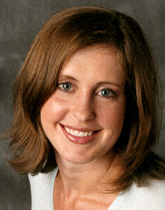
Stephanie Palmer sits excitedly in her office. She is about to meet a young screenwriter who has submitted a script for a new teen comedy. As the director of creative affairs at MGM Studios, Palmer oversees nearly 4,000 script submissions sent each year by writers hoping to land a deal. Not surprisingly, she has grown tired of reading the same type of scripts time and again. But this one is different. The fresh voice is undeniable.
But when the screenwriter meets with her, he seems to be nervous "talking hastily and, at times, incoherently” making his script sound like all the others. Palmer knows better, but she also knows she can't let him pitch the idea to her boss, because he can barely sell it to her.
She isn't ready to give up, though, and spends the rest of the day coaching the young screenwriter on making a pitch. The next day, when Palmer brings him into a meeting with her boss, he is smooth and charismatic, making all the important selling points, or as Hollywood agents and producers like to say, he is "good in a room."
When the script is bought on the spot, Palmer realizes she has a knack for helping people sell themselves. She winds up leaving MGM to start Good in a Room, a business that coaches people to make pitches.
Founded in 2005, it's the first of its kind in Hollywood, and it's now a blockbuster hit; 12 Academy Award directors and screenwriters have come to Palmer for help pitching ideas.
It's a bit surprising that though she works in the film industry, she grew up without a television in her home. Her parents encouraged her to read, so she devoured biographies, autobiographies, and plays. By the time she graduated in 1997 from the Carnegie Mellon School of Drama with a degree in directing, she says she knew what made a script work well. She honed the skill at MGM. Since then, she's bought and developed the scripts for such films as Be Cool, Legally Blonde, Agent Cody Banks, and Mad Money.
During her time at MGM, sitting through more than 3,000 meetings with writers and directors pitching projects, Palmer learned the nuances of presentation skills. She points out why the pitch is so important, noting that scripts compete with more than 60,000 screenplays already written and registered with the Writers Guild. With those kinds of odds, it's no wonder she borrows from the New York cliché by saying, "If you can pitch successfully in Hollywood, you can pitch anywhere."
For Palmer, to "make it" necessitates being good in a room "being the person who stands out by knowing what buyers look for: something concise, compelling, and repeatable. Using those concepts, she has expanded outside Hollywood to work with clients in various industries' some are financial advisors, some are looking for venture capital. "Ideas are inherently hard to pitch," she says. Her art of the pitch is the subject of her new book, Good in a Room: How to Sell Yourself (and Your Ideas) and Win Over Any Audience.
Her success at winning over a room hasn't gone unnoticed. Hollywood Reporter named her one of the top 35 Hollywood executives younger than 35.



